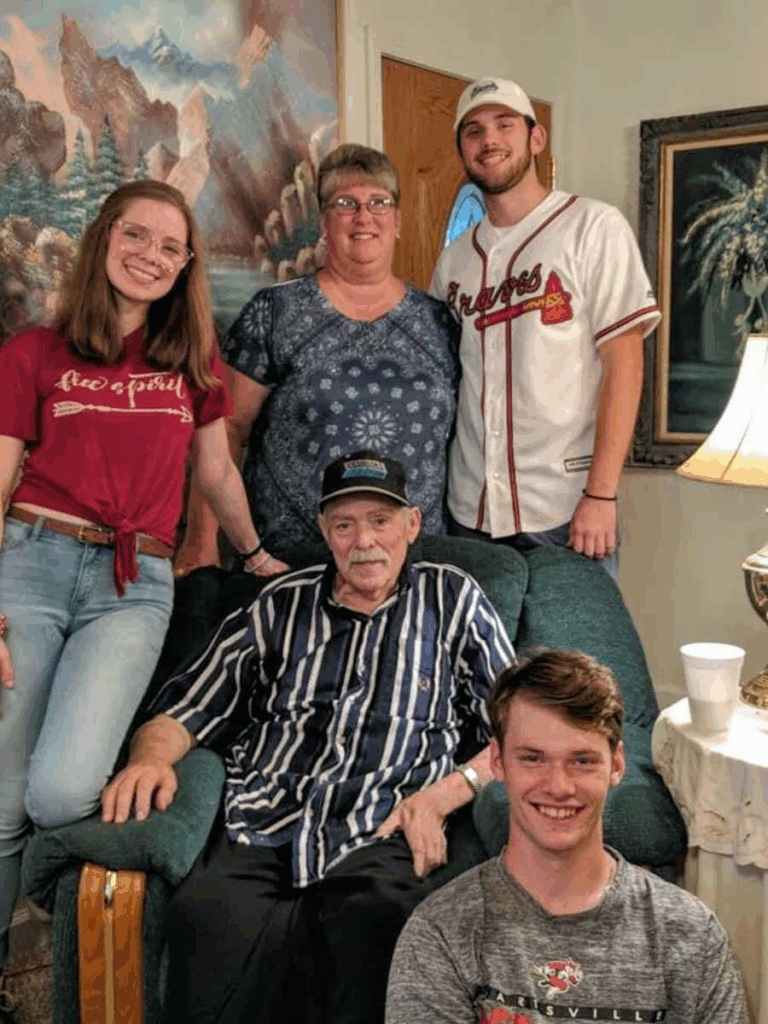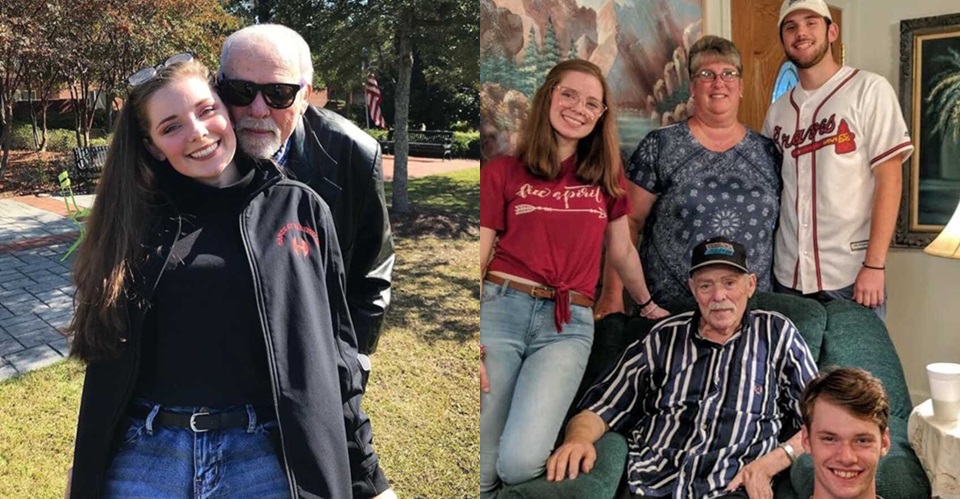When a loved one is gone, the music we share keeps their light playing on. Her parents were musicians, so singing harmonies in the back seat was how the family drove anywhere. Her father, especially, sparked her love for writing and singing. In recent years, though, his health began to fade: first cancer, then brain tumors, then kidney failure. When treatments could no longer give him a real quality of life, the family chose to stop dialysis and focus on comfort.
Music carried them through those final days. They played his favorites at his bedside and sang along: “Your Smiling Face,” “Cattle Call,” “My Girl.” They were the soundtrack of her childhood, and now they became a gentle way to say goodbye. Every time Monica hears those songs, she feels him close.

As she mourned, Monica remembered how her dad shaped her with his creativity, warmth, and love of a good performance. Because music is the thread that ties her family together, she decided the best way to honor him was to share his work. He left behind hundreds of original songs. Monica dreams of remastering them, keeping his voice on some, and recording new vocals on others in her home studio. She started by posting one of the songs on Instagram, explaining her plan to bring more of his music into the world. Remembering him brings smiles as well as tears. Her dad loved to “put on a show,” sometimes bigger than the moment called for, and he had a way of making the room laugh. He was also a great cook who sang everywhere on the way to the kitchen and back.

As his illnesses piled up and he lost the ability to play and sing like he used to, he grew short-tempered. Monica and the family learned patience, understanding that the frustration came from a profound loss of what he loved most. His songs still teach her about who he was and his love for the family. One of Monica’s favorites is the song he wrote for her mother when they married, “Dreams Can Come True.”
It began as a solo, and then he rerecorded it with her mom singing harmony, which they performed at their wedding reception. Monica hopes to have her first dance to that song someday at her own wedding to keep her parents’ love story close to her heart.

The project is more than a tribute; it’s healing. By sorting through his lyrics and melodies, Monica is piecing together memories and making new ones. Music lets her family grieve without forgetting the joy he brought into their home. It gives them a way to move forward while holding on to what matters: his voice, his words, and the love that lives between the lines. Monica believes her father’s songs can help others, too. The beauty and honesty in his writing might comfort someone going through their own hard season. Sharing his music feels like passing along a gift he meant for the world, not just for them. In every chorus she records and every note she polishes, Monica is saying, “I remember. I’m grateful. I will keep you singing.”

Since sharing the first track, messages have trickled in from friends and strangers who say her dad’s lyrics helped them through hard days of their own. Monica saves those notes and reads them when the house is quiet, letting their kindness steady her.
She’s learning the slow work of audio cleanup, asking other musicians for tips, and celebrating small wins like finding the perfect take or uncovering an old demo she’d never heard. On weekends, she and her mom sit with coffee, play a song, and trade stories about when and why he wrote it. Each session feels like a visit: a little laughter, a few tears, and a plan for what to share next, so his voice keeps moving from their living room into the world.












